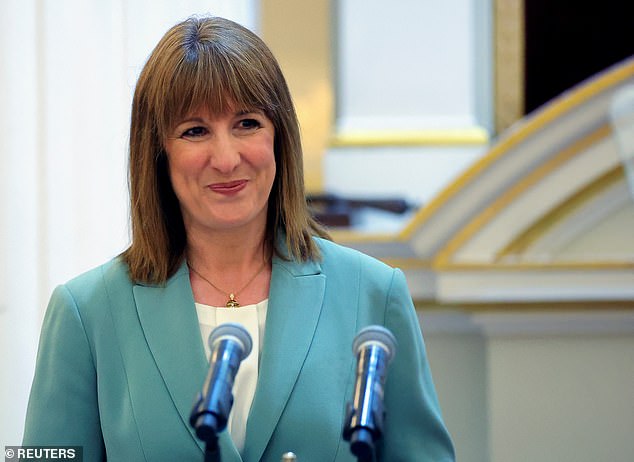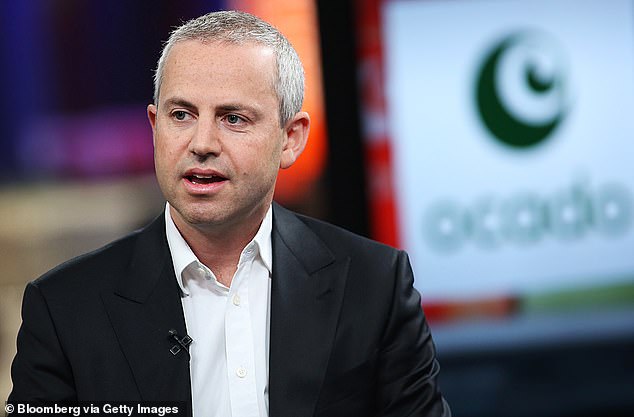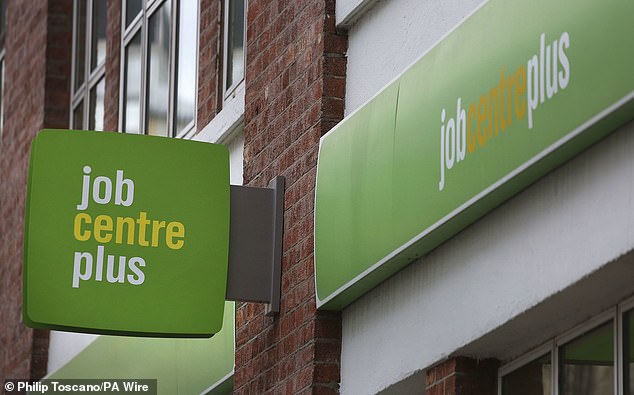Unemployment has surged to a four-year high as Labour’s ‘triple whammy’ of minimum wage hikes, tax rises and workers’ rights rules hit employers.
Joblessness rose to 4.7 per cent in the three months to May, the highest since June 2021, according to the Office for National Statistics.
The number of workers on UK payrolls has fallen for five months in a row, and sank by 41,000 in June alone, the biggest monthly fall since Covid.
Overall, the total has dropped by 178,000 since Labour came to power while pay growth is now at a three-year low, the ONS also revealed.
It said the jobs market ‘continues to weaken’ and that ‘some firms may not be recruiting new workers or replacing workers who have left’.
Bosses from Ocado and Frasers yesterday became the latest to warn against imposing further taxes that will inflict more damage.
It comes after Chancellor Rachel Reeves launched a £25billion raid on employer national insurance in last autumn’s Budget – which took effect in April.
Alongside a sharp rise in the minimum wage and plans to impose a raft of new workers’ rights, it is making it more expensive to take on staff.

Chancellor Rachel Reeves launched a £25billion raid on employer national insurance in last autumn’s Budget, as retail bosses yesterday warned against further taxes

Ocado boss Tim Steiner yesterday said ‘any tax increases will not be favourable to the economy or business’
Business groups blamed ministers for implementing policies dreamed up by ‘misguided wishful thinkers’.
‘Today’s disturbing figures add to a weight of evidence that if you make it more expensive and riskier to give someone a job, the result will be fewer jobs,’ said Tina McKenzie, of the Federation of Small Businesses.
And Kallum Pickering, chief economist at broker Peel Hunt, said the jobs bloodbath was ‘the consequences of a predictable error’, adding: ‘With each month, the negative impact of the Government’s triple whammy of anti-employment policy measures… becomes clearer and clearer.’
The job figures represent another black mark against the Government’s record a year after it took office, with recent figures showing the economy is shrinking and warnings that Britain’s debt is becoming unsustainable.
Yesterday, there were further warnings of worse to come if – as feared – Ms Reeves launches a fresh tax raid on business in her next Budget this autumn as she looks to fill a multi- billion hole in the public finances.
Ocado boss Tim Steiner said ‘any tax increases will not be favourable to the economy or business’.
And Chris Wootton, finance chief of retail group Frasers, warned of ‘dark new clouds’ over this autumn’s Budget.
Yesterday’s ONS figures sketched out a grim picture of how hard-hit parts of the economy were suffering in Keir Starmer’s Britain.

The ONS has said the jobs market ‘continues to weaken’ and that ‘some firms may not be recruiting new workers or replacing workers who have left’
Jobs in the hotel and restaurant sector were down by 108,000 over the past year, while tens of thousands more disappeared in retail and manufacturing.
Kate Nicholls, of trade association UK Hospitality, said: ‘These devastating job losses are a direct consequence of policy decisions at last year’s Budget, which have disproportionately hit the hospitality sector.’
Dee Corsi, at trade association High Streets UK, said the figures are a ‘reminder that the growing cost of doing business has a tangible impact on the prospects of working people’.
Among the few winners were public sector-dominated areas such as health and social work, with an increase of 67,000 workers since Labour took power.
But Britain’s sicknote crisis continues, with 2.8million on long-term leave.
Annual wage growth of 5 per cent is the slowest since 2022. And accounting for inflation, real-terms growth was 1.8 per cent – down from 3.3 per cent shortly before Labour came to power.
Alex Hall-Chen, at the Institute of Directors (IoD), said the slump in demand for labour is the ‘result of a series of policy blows to the case for hiring staff’.
IoD research shows more business chiefs plan to cut staff headcount in the next year than increase it, she said, adding: ‘This situation is unlikely to improve any time soon.’
Downing Street acknowledged there was ‘more to do’ on turning round the economy.











